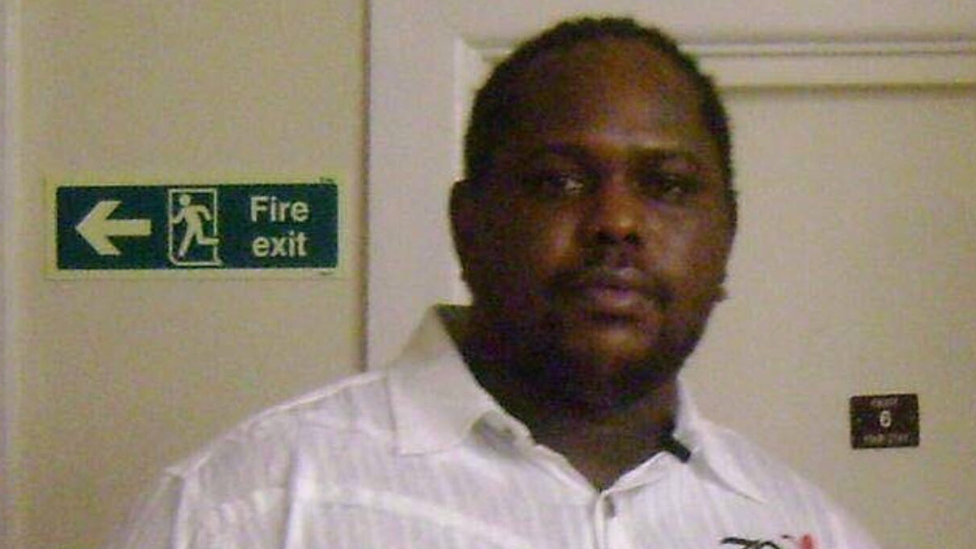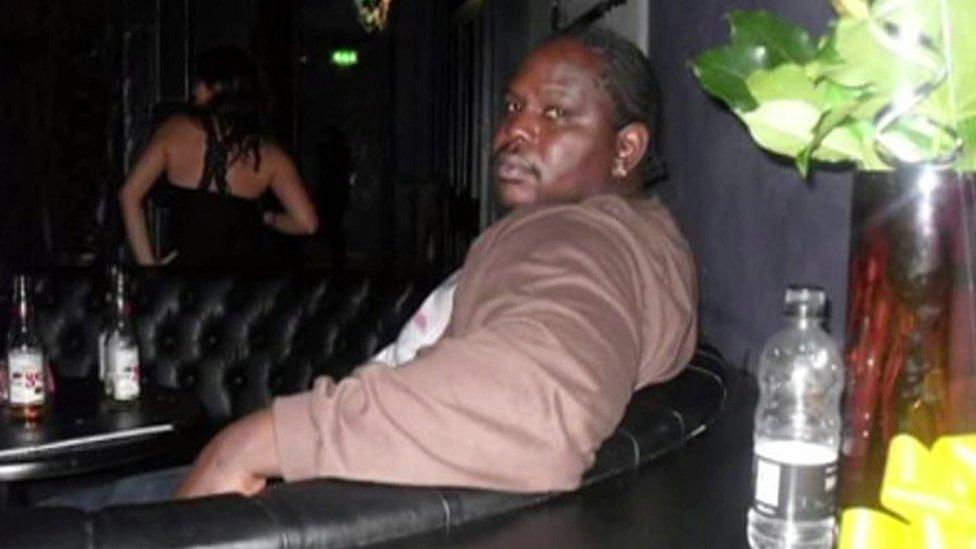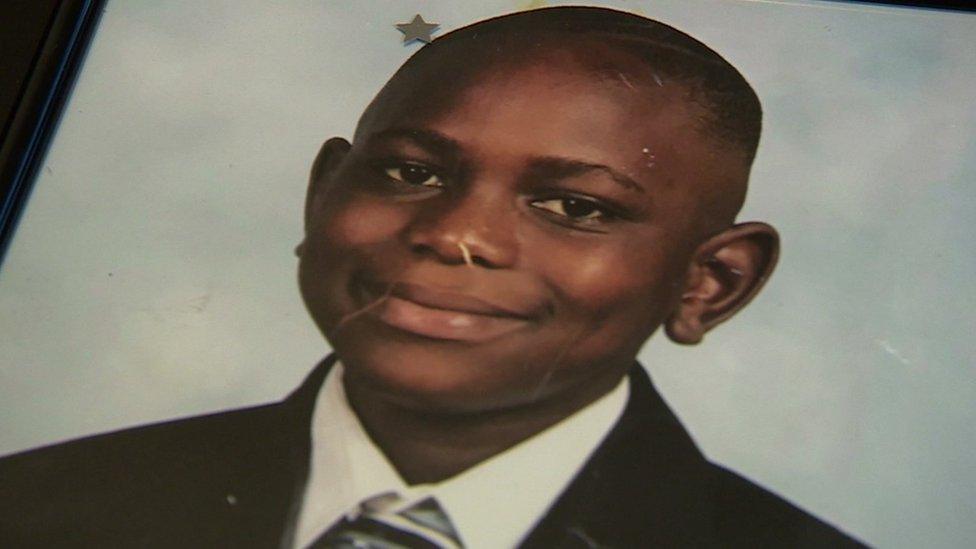'No questions' over double handcuffing of man who died in custody
- Published

Kevin Clarke was handcuffed twice when he collapsed
A Met Police officer said "no-one questioned" the double handcuffing of a mentally ill man who later died in custody, an inquest has heard.
Body camera footage showed Kevin Clarke, who had schizophrenia, being surrounded and restrained by officers in a field in March 2018
Mr Clarke, 35, lost consciousness as he was moved to an ambulance.
PC Lee Pidgeon said no concerns were raised by medics who also arrived to help Mr Clarke.
The officer also admitted at Southwark Coroner's Court that Mr Clarke's breathing may have been "compromised" as he was moved to the ambulance.
The inquest heard Mr Clarke had been seen acting erratically by officers earlier that day but was not sectioned despite concerns from staff at his residential housing block.
Vincent Williams, representing the Met Police, acknowledged that PC Pidgeon was "not an expert in relation to mental health problems and associated complications".

Mr Clarke lived at the Jigsaw Project, a residential support service
In about 40 minutes between Mr Clarke being found and put in the ambulance, there were only "seven or eight" of those when he had been restrained without a medical specialist present, Mr Williams said.
PC Pidgeon said no concerns were raised by the London Ambulance Service (LAS) paramedics who were also in the field.
He added: "Once the LAS are on the scene, training suggests they take charge. Police are in charge of restraint.
"No-one questioned my decision to handcuff [Mr Clarke] at that point."
He conceded that "in hindsight" more effort should have been made by officers to confirm LAS had taken responsibility for the situation.

Mr Clarke's family said he was "well-known and loved in our community"
Leslie Thomas, representing the family, said officers should have been aware the way they were moving Mr Clarke was putting him at risk.
"(An officer) keeps his head down and his torso is bent forward," he said, referring to bodycam footage shown to the court.
"That position affects the mechanics of breathing - moving Kevin's arms up with his torso down.
"You ran the risk that Kevin's breathing was being compromised."
PC Pidgeon replied: "There's a risk there, yes. There's a risk all the time."
Another PC told the court the officers involved had taken "collective" responsibility during the incident, with each "automatically" knowing the roles they needed to carry out.
When questioned whether opportunities were missed because no single person was in charge, PC John Buckingham replied that "ideally it would be best if one person took the lead", but "people automatically, if they are used to that situation, find a role and carry that out".
Mr Thomas suggested to the PC that the officers had made "assumptions" while restraining Mr Clarke and the lack of leadership had exacerbated the situation.
However, the PC denied that the system of collective leadership had failed, adding that he felt "everyone did the best they could in the situation".
The inquest continues.

For more London news follow on Facebook, external, on Twitter, external, on Instagram, external and subscribe to our YouTube, external channel.
- Published14 September 2020

- Published8 September 2020
